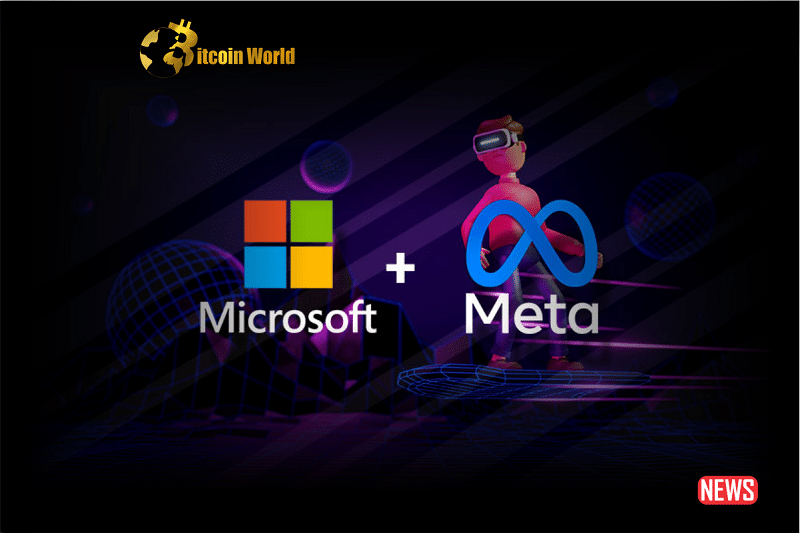The AI landscape just got a significant shake-up! Imagine a world where powerful large language models are more accessible, fostering innovation across businesses and research. Well, that vision is becoming a reality thanks to a groundbreaking collaboration between tech giants Meta and Microsoft. They’ve officially unveiled Llama 2, Meta’s latest open-source large language model, and it’s poised to make waves by integrating seamlessly with Microsoft’s ecosystem.
What is Llama 2 and Why Should You Care?
Llama 2 is the successor to Meta’s earlier language model, Llama 1, and it comes packed with impressive improvements. Think of it as a smarter, more capable AI that can understand and generate human-like text. Here’s a quick rundown of what makes Llama 2 stand out:
- Open-Source Power: Unlike some of its competitors, Llama 2 is available for free use in both academic and commercial settings. This opens up a world of possibilities for developers, researchers, and businesses of all sizes.
- Enhanced Learning: Llama 2 has been trained on a massive dataset, a whopping 40% larger than its predecessor. This means it has absorbed information from a broader range of publicly available online sources, making it more knowledgeable and versatile.
- Expanded Context Window: It can now process twice as much context compared to Llama 1. This significantly improves its ability to understand complex instructions and maintain coherence in longer conversations or code generation tasks.
- Microsoft Integration: This is a key aspect! Llama 2 is being optimized to run smoothly on Microsoft’s widely used Windows operating system and the powerful Azure cloud computing platform. This makes it readily accessible to a vast user base.
Llama 2 vs. The Competition: What’s the Buzz?
While Meta CEO Mark Zuckerberg is understandably enthusiastic about Llama 2, highlighting its potential as a strong foundation for research and business applications, it’s important to acknowledge the competitive landscape. Models like OpenAI’s GPT-4 still hold an edge in certain efficiency metrics. However, the open-source nature of Llama 2 is a game-changer. It fosters community contribution, transparency, and the potential for rapid innovation. Think of it this way:
| Feature | Llama 2 | GPT-4 (Example of Closed-Source) |
|---|---|---|
| Source Code Availability | Open Source | Closed Source |
| Commercial Use | Free (with limitations) | Requires Paid Access |
| Customization | Highly Customizable | Limited Customization |
Why is This Collaboration a Big Deal?
This partnership signifies a significant shift in the AI industry. Microsoft, a major investor in OpenAI, is now also backing Meta’s open-source initiative. This dual support underscores the importance of both proprietary and open approaches to AI development. It’s a win-win scenario, potentially accelerating AI innovation and making these powerful tools more widely available.
Remember Llama 1? Lessons Learned and Moving Forward
The story of Llama 1 provides valuable context. Meta was taken aback by the overwhelming interest in its initial release, receiving over 100,000 requests despite limited access. However, an unauthorized leak on 4chan highlighted the challenges of managing access to powerful AI models. Contrast this with the rapid adoption of ChatGPT, which quickly amassed an estimated 100 million users. The lessons learned from Llama 1 have likely informed the strategy for Llama 2’s broader release and the importance of strategic partnerships like the one with Microsoft.
Addressing the Concerns: Is Open-Source AI Safe?
The open-source nature of Llama, while offering numerous benefits, has also raised concerns. Two US senators voiced apprehension about potential vulnerabilities in the initial Llama model and the risk of misuse. The collaboration between Meta and Microsoft directly addresses these concerns. By working together, they aim to enhance the security and responsible deployment of large language models, ensuring that researchers and businesses can leverage their power safely and ethically.
What Can You Do with Llama 2 on Microsoft Platforms?
The integration of Llama 2 into Windows and Azure unlocks a plethora of opportunities. Imagine:
- Enhanced Productivity: Businesses can leverage Llama 2 for tasks like content creation, summarization, and data analysis directly within their familiar Windows environment.
- Accelerated Research: Researchers gain access to a powerful language model on the robust Azure cloud platform, enabling them to explore new frontiers in AI research.
- Custom AI Solutions: Developers can build tailored AI applications leveraging Llama 2’s capabilities, benefiting from the flexibility of open-source technology.
- Improved Coding Assistance: Llama 2’s enhanced coding proficiency can aid developers in writing and debugging code more efficiently.
The Future is Open: What’s Next for Llama 2?
The launch of Llama 2 on Microsoft platforms marks an exciting step forward in the democratization of AI. By embracing open-source principles and fostering collaboration, Meta and Microsoft are paving the way for a future where powerful AI tools are more accessible and contribute to broader innovation. Keep an eye on this space – the journey of Llama 2 has just begun, and its impact on the tech world is likely to be significant.
Key Takeaways:
- Meta and Microsoft have joined forces to release Llama 2, an open-source large language model.
- Llama 2 offers significant improvements over its predecessor, including a larger training dataset and expanded context window.
- The collaboration aims to make Llama 2 readily available on Windows and Azure for business and research purposes.
- While Llama 2 competes with closed-source models, its open nature fosters innovation and accessibility.
- The partnership addresses concerns about the responsible deployment of open-source AI.
- Users can expect enhanced productivity, accelerated research, and opportunities for custom AI solutions.
This collaboration is more than just a product launch; it’s a statement about the future of AI – a future where collaboration and open access drive progress and empower a wider range of individuals and organizations.
Disclaimer: The information provided is not trading advice, Bitcoinworld.co.in holds no liability for any investments made based on the information provided on this page. We strongly recommend independent research and/or consultation with a qualified professional before making any investment decisions.




